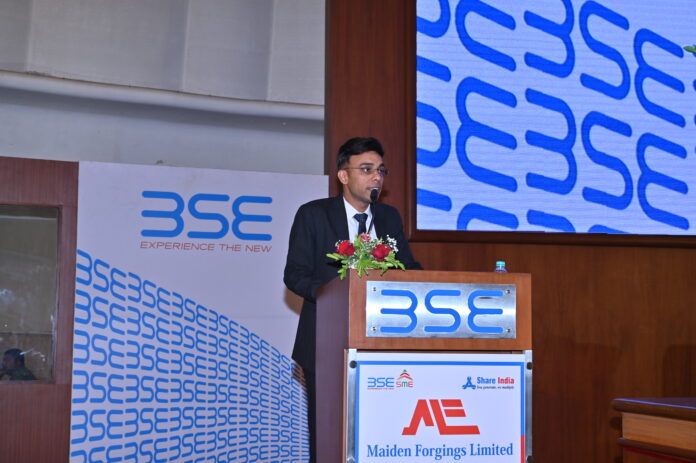Introduction
The journey from start-up inception to SME success is a complex narrative marked by strategic decisions, adaptive approaches, and persistent determination. Small and Medium-sized Enterprises (SMEs) serve as crucial drivers of economic growth, innovation, and job creation. In this article, we delve into the factual stages of SME entrepreneurship, underpinned by authentic insights and supported by key facts and figures.
Idea Incubation and Validation
The genesis of every SME success story is the spark of an idea, often born out of identifying market gaps, unmet needs, or innovative solutions. This ideation phase is rooted in thorough market research, analysis of consumer trends, and a deep understanding of the target audience. According to a survey conducted by CB Insights, 42% of start-ups fail due to a lack of market demand for their products or services. This underscores the importance of validating the idea before proceeding.
Lean Start-up Methodology
The lean start-up methodology, popularized by Eric Ries, emphasizes agility, experimentation, and iterative development. This approach minimizes waste and enables SMEs to pivot quickly based on real-time feedback. Dropbox, an exemplary case, began as a simple video demonstration to gauge demand before fully investing in development. This strategy reduces the risk of resource drain on unviable concepts and fosters a culture of adaptability.
Funding and Scaling
Access to capital is pivotal for SME growth. Aknow report indicates that lack of capital is one of the primary reasons for start-up failure. At this juncture, entrepreneurs seek angel investors, venture capitalists, or resort to bootstrapping and loans. The story of Warby Parker, which secured early funding by offering affordable eyewear and a unique “try before you buy” model, showcases the importance of innovative funding strategies.
Overcoming Adversities
The path to SME success is dotted with challenges, including market volatility, competition, and unforeseen disruptions. It’s estimated that 20% of start-ups fail within their first year, and 30% within their second year, often due to issues like inadequate financing and poor business planning. SpaceX, founded by Elon Musk, offers an inspiring example of perseverance. The company encountered numerous setbacks in its early days, yet Musk’s unwavering commitment and strategic vision propelled it to become a pivotal player in the space industry.
Innovation and Adaptation
Innovation is the cornerstone of SME survival. Businesses must continually evolve to stay relevant and competitive. Nokia, once a mobile phone industry giant, failed to adapt to the smartphone era and subsequently suffered a massive decline. Contrastingly, Amazon transformed from an online bookstore to a global e-commerce and technology powerhouse by embracing innovation and diversification. SMEs that prioritize R&D and anticipate market shifts are better positioned for long-term success.
Customer-Centric Focus
Cultivating strong customer relationships is a linchpin of SME prosperity. A study by Deloitte revealed that 62% of companies view customer experience as a competitive differentiator. Zappos, a prime example, built its brand on exceptional customer service. This approach not only fosters loyalty but also generates positive word-of-mouth referrals. An increase in customer retention by just 5% can lead to profit growth of 25% to 95%, according to research by Bain & Company.
Expanding Beyond Borders
Global expansion is a pivotal milestone for SMEs looking to access new markets and diversify revenue streams. This phase necessitates careful consideration of cultural nuances, regulatory landscapes, and localized marketing strategies. Airbnb’s international success exemplifies this strategy. The company localized its platform to cater to various markets, propelling it from a local start-up to a global hospitality giant.
Conclusion
The trajectory from SME start-up to success is a journey filled with intricacies, challenges, and opportunities. By navigating the stages of idea incubation, lean start-up methodologies, strategic funding, overcoming adversities, prioritizing innovation, fostering customer-centricity, and embracing global expansion, entrepreneurs can pave the way for enduring success. As SMEs continue to shape economies and contribute to innovation, the journey from start-up to success remains a testament to the power of entrepreneurial spirit and strategic decision-making.
About Nishant Garg
Nishant Garg, Managing Director, Maiden Forgings Limited is a highly skilled and accomplished business person who brings with him a wealth of knowledge and expertise in the business and marketing fields. An MBA in Marketing, but having deep financial knowledge in capital markets, he comes with over 12 years of experience in the industry.
Under his leadership, Maiden Forgings has achieved significant success, including a recent successful listing at BSE India. Garg’s dynamic marketing skills and extensive domestic and international network have helped the company to increase its turnover substantially over the past 11 years. He is a dedicated and passionate professional who has made numerous contributions to the growth and development of the company during his tenure.

